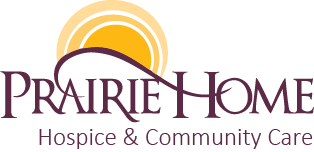You Never Know What Tomorrow Will Bring
4 things everyone should know about Hospice.

1.When is it time to call hospice?
No one wants to think about losing someone they love. For that reason, many families delay discussions about end-of-life care. If you are asking yourself when to call hospice, there is a good chance your loved one may already be eligible to receive this added layer of uniquely specialized care and support. Even if your loved one is not currently eligible for hospice care, gathering information about when you should call hospice before a crisis hits will give you time to understand the different options available and determine the best fit for your family.
Many families wait to call hospice until the final days and weeks of their loved one’s life, not knowing they could have started receiving additional specialized nursing care and medications, medical equipment and supplies related to their loved one’s terminal illness earlier. Hospice care improves the patient’s quality of life by managing pain and other symptoms of their illness and improves the family/caregiver’s lives by having someone that they can lean on, seek guidance from and receive much needed support during this difficult time.
You should call hospice if your loved one is experiencing any of the symptoms below:
- frequent visits to the ER or hospital admissions
- a decline in their ability to perform daily tasks including eating, getting dressed, walking, or using the bathroom
- an increase in falls
- changes to their mental abilities
- progressive weight loss
- skin tears, infections, and other signs of deteriorating health
If you are seeing these signs and wondering when it’s time to call hospice, it may be time now. In order to access hospice care, your loved one must be diagnosed by a physician with a terminal illness and determine that he/she likely has less than six months to live if the illness follows its typical path. If your loved one lives beyond this six month timeframe, they can continue to receive hospice care as long as a physician recertifies their eligibility.
If your loved one’s condition improves while on hospice care or if they elect to pursue curative treatments over comfort care, they may discontinue hospice care at any time and pursue other options. Your loved one may resume hospice care at a later date if their condition declines.
Prairie Home Hospice works alongside your loved one’s primary care physician to ensure they receive the right level of care at the right time in the location of their choice.
2. What can hospice do for my loved one?
Hospice care is an additional layer of support for your loved one in their home or care facility, working in partnership with your family and your loved one’s physicians. When a patient begins hospice care, they receive a team of support for their physical, emotional, and spiritual needs. In addition to this team of care, all medication related to the patient’s terminal illness and all medical equipment and supplies related to this diagnosis are provided at no cost to the patient or family.
Prairie Home Hospice provides nurses and aides to assist with clinical and personal care needs. Our social workers can help your family access additional resources and assist in end-of-life planning. Chaplains provide spiritual support. Volunteers step in to provide companionship visits to your loved one and/or give family members a chance to take a break. Bereavement counselors are available for those who need additional support.
If your loved one is experiencing pain, our team will work to control their pain quickly and efficiently. If they are having trouble sleeping or experiencing other discomfort or mobility issues, our team will work with your loved one’s physician to address these concerns.
As a “We Honor Veterans” partners, Prairie Home Hospice makes a point to honor the Veterans, thanking them for their service and the sacrifices they made for our country. A special Veterans Memory book is presented to each Veteran’s family. Hospice care is 100% covered by Medicare, Medicaid, and most private insurance companies. This means this team of care and extra support is generally provided at no cost to the patient or their family.
While talking about when to call hospice can be difficult, most families tell us they wished they had called sooner. Prairie Home Hospice’s team of experts is available 24 hours a day, 7 days a week, 365 days a year to support your loved one.
If you’re not sure when is the right time to call hospice, call us now. We’ll meet with you to talk more about hospice and provide you the information you’ll need so that you’ll be more comfortable in making that decision, when the time is right for you and your loved one.
3. How do I choose the right hospice provider?
The State and Federal Hospice Patient Bill of Rights assures the rights of all patients who have been recommended for hospice services to be provided information about other services in the community, including other end of life services and other hospice providers; and the right to choose freely among available hospice providers. If your physician or discharge planner does not provide this information, you have a right to ask for it. They should respect your right to this information and your right to make the choice that feels right for you.
As with anything health related, ask friends and family if they can give you any hospice recommendations. It’s important that you trust the source of your information, and your friends and family are unlikely to steer you in the wrong direction. While physicians and discharge planners may also offer recommendations, it is important to ask if they (or the health organization they work for) has a financial interest in the recommendation they make.
Websites can also be a good source of information. Most hospice providers today have a website where you can go to find information about the services they provide, their hospice philosophy, their staffing levels, etc. These sights can be very helpful. To find hospice providers in your area, simply google hospice and your city/community.
In choosing the right hospice, here are some good questions to ask:
- How long has the hospice been in operation?
- Is the hospice Medicare certified?
- How does the hospice measure/track quality service?
- Are any services offered beyond required services? For example, Prairie Home Hospice offers massage therapy and pet therapy services.
- What type of bereavement services are offered?
- What are the expectations about the family’s role in caregiving? Is respite care available for family members when they need a break?
- What is the amount of time that the hospice care team will spend with a patient? Does that increase in the last few days or hours of the patient’s life? This is a very important question, as the time the care team spends with your loved one sets the stage for quality care and a meaningful hospice experience. Many hospice providers today have limited restrictions on the amount of time they allow care staff to spend visiting patients. Others, like Prairie Home Hospice, understand that good care cannot happen when care givers are not provided adequate time to spend with their patients.
Additional questions you may want to ask include:
- Can the hospice staff meet with you the same day a doctor recommendation is made? How long is the admissions process?
- Can a patient be admitted at night, weekends or on a holiday, or are admissions limited to certain hours during the day?
- Is the agency staffed 100 percent with its own employees or does it contract agency staff?
- Does the service include a dedicated on-call team around the clock?
- Will the hospice strive to have someone with the patient in his/her final moments (nurse, aid, chaplain, social worker, etc.)?
- What is the number of weekly visits the hospice will provide?
Choosing a hospice provider for a loved one is not a decision to be taken lightly. A great deal of research and thought should go into your decision-making process.
Obtaining hospice care for a loved one doesn’t mean you’re giving up on them. In fact, research published in the Journal of Pain and Symptom Management found that terminally-ill patients who receive hospice care lived an average of 29 days longer than those who did not opt for hospice near the end of life.
If the patient’s condition improves, hospice care can be discontinued and treatment resumed. The point is that you shouldn’t postpone hospice care because you are in denial or avoiding the inevitable. By choosing hospice care, you’ll know you’re doing right by your loved one
4. Who Pays For Hospice Care?
Hospice is paid for through the Medicare Hospice Benefit, Medicaid Hospice Benefit, and most private insurers. If a person does not have coverage through Medicare, Medicaid or a private insurance company, Prairie Home Hospice will work with the person and their family to ensure needed services can be provided.
If hospice care is provided in a hospice house, there are room and board charges that the Medicare benefit does not cover. However, these charges may be covered by insurance. When resources are not available to cover the cost of these charges, Prairie Home Hospice will work with you to see if you are eligible for Medicaid benefits to help cover those charges. Anyone who qualifies for benefits at a nursing home would also qualify for resident charges at our Lockwood House.
We encourage every person to have a health care directive. None of us know when something might happen that might impact our ability to speak for ourselves to express our wishes when it comes to our own health care. Prairie Home Hospice offers free consultations for individuals and families who want more information about creating a health care directive or about our services.
It’s always a good idea to be informed and have a plan before there’s a crisis, so that you and your loved one are prepared to make the decisions that are right for you.
To schedule a free consultation, please contact Nicole Jacobson, Clinical Director at (507)337-0080.


